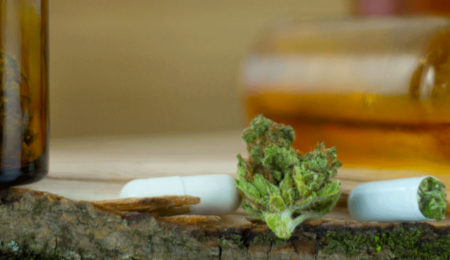Cannabis and Pregnancy

The existing research into the effects of Cannabis on the developing child is inconclusive at best and confusing at worst.
The existing research into the effects of Cannabis on the developing child is inconclusive at best and confusing at worst. I feel great sympathy for any pot user who finds herself pregnant as a huge decision awaits, with little evidence either way to support the final choice of whether or not to continue use. It is my intention to clarify these muddy waters, where possible.
Cannabis use is most prevalent in the 18-25 year age range - also the demographic that is most likely to reproduce. In the USA, around 15% of the population are regular users, and of these, 3% are pregnant. With medical Cannabis being used long-term for many chronic conditions, the issue of its safety for expectant mothers demands attention.
It is easy to assume the worst about Cannabis use during pregnancy, as with all unfamiliar medications. However, while there may well be women out there who - consciously or otherwise - put their unborn children at risk from continued exposure to known harmful substances, we can't assume this is a brush with which to tar weed users. Most women can't comfortably continue their use of a medication through pregnancy while uncertain of its safety. It is proving to be a tough choice to make for many.
Existing studies may be inherently flawed as they assess use through smoking only. While research concludes that the effects of smoking Cannabis and tobacco are disparate (recent news suggests that Cannabis smoke may in fact exert a protective action on the lungs), it is irresponsible to suggest that smoking any substance is entirely beneficial to health. Studies should differentiate between the effects of smoking Cannabis while pregnant, and those of alternative techniques such as vaporizing or ingesting orally.
Arguments against consuming Cannabis during pregnancy include results of research conducted last year by the Erasmus University of Rotterdam, which states that babies born to Cannabis-using mothers tend to have below-average cranial circumference and birth weight. It was discovered that Cannabis, when used only in early pregnancy, slowed fetal growth by around 0.39 oz. per week. If use continued throughout pregnancy, reduction in growth rate averaged out at around 0.49 oz. per week. Tobacco, on the other hand, slowed growth by approximately 0.14 oz. per week.
As deprivation of oxygen to the developing fetus's brain is considered to be a major factor for low birth weight, perhaps the difference here could even be explained simply: Cannabis users tend to inhale more deeply, and for longer, therefore depriving the brain of oxygen for longer than a cigarette smoker. Levels of carboxyhemoglobin (formed when carbon monoxide reacts with hemoglobin in the blood) are five times higher after smoking Cannabis than after smoking tobacco.
This study concludes that the effects of smoking marijuana are indeed detrimental to the developing baby - but the question of whether cannabinoids themselves play a part in these findings remains unanswered. Other factors must also be taken into consideration, such as socioeconomic status of the mother, her level of general health and stress and prevalent cultural attitudes towards Cannabis in the location of study. In a country where Cannabis is illegal or frowned upon, users are often more likely to be of lower social status and subject to stress-inducing economic disadvantages.
The available Cannabis itself may be of poor quality or grown with potentially harmful chemicals. Even in the Netherlands, where retail sales of Cannabis are tolerated but wholesale distribution and cultivation is not, these factors must be considered.
In a locality where Cannabis use is traditional, users are generally from across the social spectrum so economic disadvantages will have less effect on subjects and, therefore, results. This argument may be borne out by Dr. Melanie Dreher's work in Jamaica during the 1990s on Cannabis-using mothers and their children. Long-term studies conducted on development of children exposed to Cannabis in utero found no evidence of inferiority to the children of non-Cannabis using mothers; in fact, the former group showed fewer signs of stress-related anxiety, and better organizational skills. Significantly, her research does not solely concentrate on smokers but also users of Cannabis.
Her research also highlights the importance of Cannabis to expectant mothers as a remedy for nausea, not uniquely: there are many references in medical literature to this application. Mothers reported increased appetite and mood stability. Cannabis was also considered helpful in treatment of post-natal depression. That Cannabis may assist the mother's ability to provide a high level of care suggests a positive overall effect on the long-term health of her children.
Studies that concentrate solely on the effects during pregnancy of Cannabis use through methods other than smoking are apparently non-existent, and much needed. There is a shocking scarcity of research from recent years. The increasing prevalence of Cannabis being prescribed by doctors as a universal panacea for all manner of ailments cannot continue without confirmation of its safety. From an ethical perspective, conducting incomplete clinical trials on any new medicine would imply full responsibility on the part of the medical profession if another scandal of Thalidomide proportions then occurred. Even if all future trials proved its benevolence, Cannabis requires further scrutiny.
At this stage, there is little definite conclusion that can be drawn, save that smoking Cannabis is likely the most unsafe way to medicate; and that while Cannabis use may bring many benefits to the mother, the harm that it could do the developing fetus may outweigh them. With patients for whom medication is a necessity, there is no clear way to decide on whether to continue their Cannabis use or to switch to an alternative pharmaceutical. For many the initial clincher will remain: that Cannabis is a non-invasive drug with far fewer side effects than many. For these women, to simply use as little of it as possible (ideally in tea form, or vaporized) would surely be the advisable way to avoid the potential for adverse effects occurring.
S
Soft Secrets



